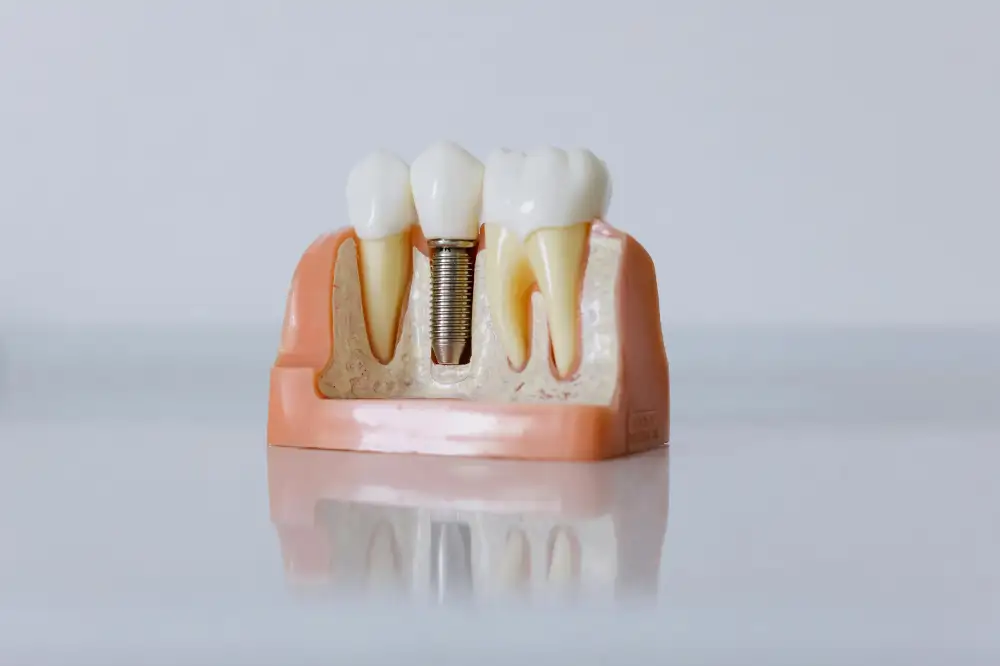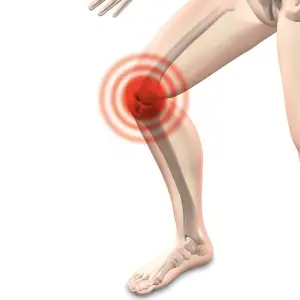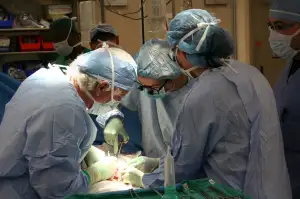Latera Implant Lawsuit: Unveiling the Legal Battle Surrounding Nasal Implants

The Latera Implant Lawsuit has gained significant attention in recent months, as numerous individuals have come forward with claims of serious health complications resulting from the use of Latera Nasal Implants. This legal battle revolves around allegations that the implants, which are designed to treat nasal airway obstruction, have caused severe side effects and failed to deliver the promised results. As the lawsuit unfolds, it raises important questions about patient safety and the responsibility of medical device manufacturers to thoroughly test their products before bringing them to market.
Understanding Latera Nasal Implants
Latera Nasal Implants are a type of medical device designed to treat nasal valve collapse, a condition that can cause difficulty in breathing through the nose. The implants are made from a bioabsorbable material and are inserted into the lateral nasal wall to provide support and improve airflow. They are intended to be a less invasive alternative to traditional surgical procedures for nasal valve collapse.
The Latera implant procedure involves a small incision made inside the nostril, through which the implant is placed. Once inserted, the implant gradually dissolves over time as it provides structural support to the nasal valve area. This innovative approach has gained popularity among both patients and healthcare professionals due to its minimally invasive nature and potential benefits in improving nasal breathing.
It is important to note that Latera Nasal Implants have been cleared by regulatory authorities such as the U.S. Food and Drug Administration (FDA) for use in treating nasal valve collapse. However, their safety and efficacy have come under scrutiny in recent years due to allegations raised in lawsuits against the manufacturer. These allegations claim that the implants may cause serious health complications and fail to deliver their intended benefits.
While understanding the purpose and mechanism of Latera Nasal Implants is crucial, it is equally important to examine the claims made in lawsuits against them. This will help shed light on potential risks associated with these implants and provide valuable insights into ongoing legal battles surrounding their usage.
Allegations and Claims in the Lawsuit
In the Latera implant lawsuit, several allegations and claims have been made against the manufacturers of Latera nasal implants. The plaintiffs argue that the implants are defective and have caused them significant harm. They claim that the implants have failed to provide the intended benefits and have resulted in complications such as migration, infection, and tissue damage. Additionally, it is alleged that the manufacturers failed to adequately warn patients about these potential risks. These claims highlight the need for a thorough investigation into the safety and effectiveness of Latera nasal implants.
Potential Health Risks Associated with Latera Implants
Despite being marketed as a safe and effective solution for nasal obstruction, there have been concerns raised regarding the potential health risks associated with Latera implants. Some patients have reported experiencing adverse effects after undergoing the implant procedure.
One of the main concerns is the possibility of infection. Any surgical procedure carries a risk of infection, and this is no exception with Latera implants. Infections can lead to complications such as pain, swelling, redness, and even the need for additional surgeries to remove or replace the implant.
Another potential health risk is implant migration. There have been cases where the implant has shifted from its intended position within the nasal passage. This can result in discomfort, breathing difficulties, and potentially require further intervention to correct.
Furthermore, some patients have reported experiencing chronic nosebleeds after receiving Latera implants. While it is unclear whether these nosebleeds are directly caused by the implants themselves or other factors, it is a concern that needs further investigation.
It is important to note that these potential health risks associated with Latera implants are not yet fully substantiated. More research and evidence are needed to determine their true extent and causality.
Patients considering or already having undergone Latera implant surgery should be aware of these potential risks and discuss them thoroughly with their healthcare providers. It is crucial to weigh the benefits against the possible drawbacks before making any decisions regarding this procedure.
Legal Proceedings and Current Status of the Lawsuit
The Latera implant lawsuit has sparked a series of legal proceedings that are currently underway. Multiple individuals who have experienced complications after receiving Latera nasal implants have filed lawsuits against the manufacturer.
As of now, the lawsuits are in various stages of litigation. The plaintiffs allege that the manufacturer failed to adequately warn them about the potential risks associated with the implants. They claim that they were not properly informed about the possibility of adverse reactions or complications.
The defendants, on the other hand, argue that they provided sufficient information regarding the risks and benefits of the implants. They maintain that they followed all necessary regulatory guidelines and standards during the development and marketing of Latera implants.
The lawsuits are being closely monitored by legal experts and medical professionals alike. The outcome of these cases could potentially set a precedent for future medical implant litigation.
It is important to note that while some cases have been settled out of court, others are still pending trial. The exact number of lawsuits filed against the manufacturer is not publicly available at this time.
As this legal battle unfolds, it remains to be seen how it will impact both patients who have received Latera implants and the wider medical community. It is crucial for all parties involved to closely follow these proceedings as they may shed light on important issues related to patient safety and informed consent.
Patients who have received Latera implants should stay informed about any updates regarding this lawsuit. It is advisable for them to consult with their healthcare providers if they experience any concerning symptoms or complications related to their nasal implants.
In conclusion, the legal proceedings surrounding Latera nasal implants are ongoing, with multiple lawsuits filed against the manufacturer. The outcomes of these cases will likely shape future discussions around patient safety in relation to medical implants.
Impact on Patients and Medical Community
The Latera implant lawsuit has had a significant impact on both patients and the medical community. Patients who have received these nasal implants are understandably concerned about their safety and potential health risks. The lawsuit has raised awareness among patients, leading them to question the effectiveness and long-term consequences of the implants.
Moreover, the medical community has also been affected by this legal battle. Physicians who have recommended or performed Latera implant surgeries may face scrutiny and potential lawsuits from dissatisfied patients. This has resulted in a decrease in trust between doctors and their patients, as well as a decline in the popularity of these implants.
Furthermore, the lawsuit has prompted medical professionals to reevaluate the safety standards and regulations surrounding nasal implants. It has highlighted the importance of thorough research, rigorous testing, and informed consent when it comes to introducing new medical devices into the market.
Overall, the impact of this lawsuit on patients and the medical community cannot be underestimated. It serves as a reminder that patient safety should always be prioritized over profit margins, and that thorough evaluation of medical devices is crucial before they are made available for public use.
Recommendations for Patients with Latera Implants
1. Consult your healthcare provider: If you have concerns or experience any unusual symptoms after receiving a Latera implant, it is crucial to consult your healthcare provider immediately. They can evaluate your condition and provide appropriate guidance.
2. Stay informed: Keep yourself updated on the latest developments regarding the lawsuit and any potential health risks associated with Latera implants. Follow reliable sources such as official statements from regulatory authorities or reputable medical organizations.
3. Document your symptoms: Maintain a record of any symptoms or complications you experience related to the implant. This documentation can be valuable if you decide to pursue legal action or seek compensation in the future.
4. Seek legal advice: If you believe you have suffered harm due to a Latera implant, consider consulting a qualified attorney specializing in medical device litigation. They can assess your case and provide guidance on potential legal options available to you.
5. Join support groups: Connecting with other individuals who have had similar experiences with Latera implants can provide emotional support and valuable insights. Online support groups or patient advocacy organizations may offer resources and information that could assist you in navigating this challenging situation.
Remember, these recommendations are general guidelines, and it's important to consult with healthcare professionals and legal experts for personalized advice based on your specific circumstances.
The Latera implant lawsuit has shed light on the crucial issue of safety in medical implants. It serves as a reminder that thorough research and testing are essential before introducing any new implant into the market. Patient safety should always be the top priority, and any potential health risks associated with implants must be thoroughly investigated.
This legal battle emphasizes the need for transparency and accountability in the medical community. Patients deserve to have access to accurate information about the potential risks and benefits of any implant they are considering. Additionally, healthcare professionals must stay vigilant in monitoring their patients' well-being after implantation.
Moving forward, it is imperative for regulatory bodies to strengthen their oversight processes to ensure that all medical implants meet rigorous safety standards. This includes conducting comprehensive clinical trials and long-term follow-up studies to assess the efficacy and safety of these devices.
Patients with Latera implants should consult with their healthcare providers regarding any concerns or symptoms they may experience. Regular check-ups and open communication with medical professionals are vital for early detection and management of any potential complications.
In conclusion, this lawsuit serves as a wake-up call for both patients and the medical community. It highlights the importance of prioritizing patient safety above all else when it comes to medical implants. By learning from this case, we can work towards creating a safer environment for all individuals who require such interventions.
Published: 16. 02. 2024
Category: Health



